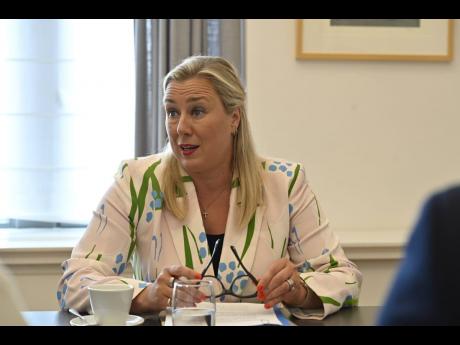Inclusive societies project to aid Latin America, Caribbean
BRUSSELS, BELGIUM:
The European Commission has introduced a €60-million inclusive societies project that will benefit Latin America and the Caribbean region. This announcement was made by Jutta Urpilainen, commissioner for international partnerships in the European Commission, during the opening ceremony of the EU-Latin America and the Caribbean Forum on ‘Partners in Change: Youth, Civil Society and Local Authorities’ last Thursday.
“As politicians, we come and go, but relations between people, youth and civil society in particular are the real foundation of a true, lasting partnership; and I also believe that focusing on people and human development is key to prosperity and reducing inequalities that hamper development,” she said.
The overall objective of the project, she added, is to address inequalities, reduce poverty and social inclusion, and to enhance social cohesion within Latin American and Caribbean countries.
During a press conference held after the opening ceremony, Urpilainen explained that the inspiration for creating such a programme came from her three trips to the region last year, during which she said the topics of inequality and social inclusion have increasingly come up in her interactions with leaders, youth organisations, and members of civil society, many of whom have asked for the creation of such a project to help address these problems.
She stated that the Commission’s major policy priority has been green and digital transition, with most of its funding being allocated towards those areas, but now, in this case, tools such as education and training would be utilised to encourage ‘ethos objectives’ from the project.
“It will drive innovative, social policymaking, [and] allowing both regions to share best practices,” she said.
The commissioner also mentioned that the European Commission was collaborating with its 27 member states on the Team Europe initiative, which aims to unite their efforts with those of financial institutions, the private sector, and the European Union to promote the development of an inclusive society by funding social policies, education, and skill development.

